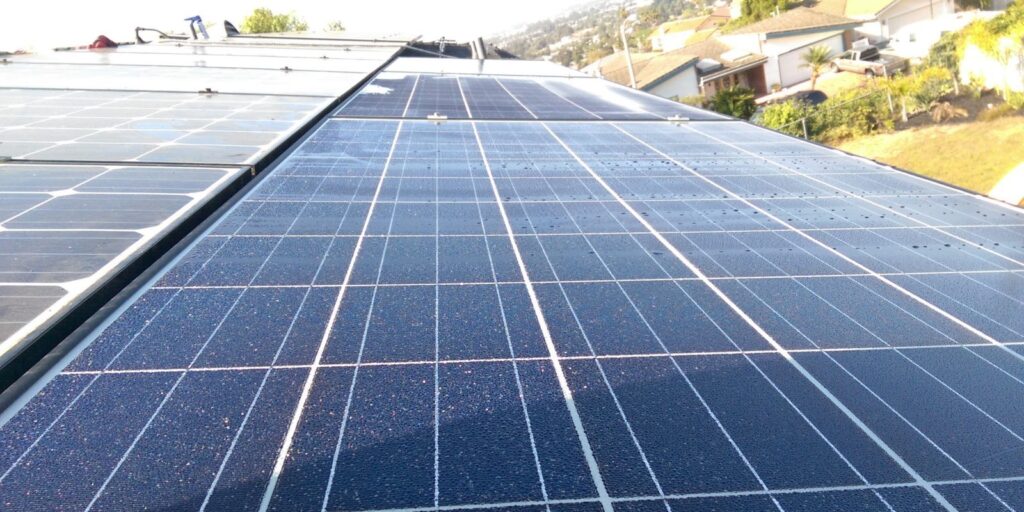Sign up for CleanTechnica’s Weekly Substack for Zach and Scott’s in-depth analyses and high level summaries, sign up for our daily newsletter, and/or follow us on Google News!

California has long been a trailblazer in clean energy, with more than two million homes powered by the sun. But a new proposal making its way through Sacramento, Assembly Bill 942 (AB 942), could throw a wrench in the state’s rooftop solar success story, and solar advocates aren’t taking it lightly.
This bill doesn’t just tweak policy, it fundamentally changes the deal that tens of thousands of solar customers thought they had with the state. For many, it’s a broken promise — and one that could cost them.
What’s AB 942?
AB 942, introduced by Assemblymember Lisa Calderon, would cut the guaranteed benefits of net energy metering (NEM) agreements from 20 years down to just 10. That’s a big deal.
NEM agreements are what make rooftop solar financially viable for most homeowners. They ensure that solar customers get credited at retail rates for the excess electricity they send back to the grid. For anyone who went solar before April 15, 2023, this 20-year term was not just implied — it was guaranteed in state-backed contracts.
Now, under AB 942, not only would these agreements get shortened, but they also wouldn’t carry over if the home is sold. That means if you’ve got solar and want to sell your house, the new buyer would be pushed onto less generous terms, making your solar investment way less attractive.
What It Means For Solar Customers
The financial impact is real. According to recent estimates, the average solar customer affected by this bill could see their monthly utility bills rise by about $63. That adds up to more than $750 per year. And for families who budgeted for solar based on stable, predictable savings, that’s a major financial impact.
At the heart of the issue is NEM 3.0, California’s new net metering policy for solar customers who signed up after April 2023. It slashed compensation for excess energy by about 80%. It also caused California rooftop solar installations to drop 80%, according to PV Magazine.
If AB 942 passes, older customers who signed up under NEM 1.0 or 2.0 would be forced into this new system halfway through their contracts. This is like changing the rules of the game in the middle of the match, and for thousands of families and small businesses, it could throw years of financial planning out the window.
As reported by the San Francisco Chronicle,
Richard McCann, a consultant for the California Solar and Storage Association, said rooftop solar customers provide nearly 20% of power during times of the year when energy demand peaks and wholesale electricity is therefore the most expensive, such as hot summertime days. He criticized the argument that solar benefits shift costs onto other customers. “Why are we trying to punish customers we asked to do a good deed?” McCann said.
McCann is one of the co-authors of a recent white paper, Rooftop Solar Reduces Costs for All Ratepayers, and another before that, How Rooftop Solar Customers Benefit Other Ratepayers Financially to the Tune of $1.5 Billion, both of which help to put the lie to the claims made by proponents of the bill.
Trust, Contracts, & Precedents
AB 942 is also stirring up serious legal and ethical concerns, with opponents arguing that the bill breaks a clear promise made to solar adopters. When someone signs a contract with the state that guarantees 20 years of specific terms, those terms shouldn’t be up for grabs five or ten years later.
Steve Campbell from Vote Solar issued a statement about the proposed bill, saying:
“AB 942 is a direct attack on California families who made long-term investments in solar with the promise of fair, 20-year Net Energy Metering agreements — guarantees that were clearly outlined in the state’s own consumer protection documents.
“Changing the rules after the fact isn’t just unfair — it risks eroding public confidence in the integrity of California’s regulatory system. More than a million Californians signed contracts and state-issued guides in good faith, trusting that regulators would keep their word. Retroactively breaking those agreements would set a dangerous precedent for all consumer protections in California.”
“Instead of pulling the rug out from under existing solar customers, lawmakers and the California Public Utilities Commission (CPUC) should use the tools already at their disposal to lower bills and support low-income communities — like utility business model reform, reasonable income-based fixed charges, and targeted use of the California Climate Credit to focus on low-wealth customers.”
The trust factor matters. California has relied heavily on grassroots solar adoption to meet its climate goals. If homeowners and businesses start second-guessing whether they can count on the rules staying put, it could put a chill on future solar investments.
Who Really Benefits?
Supporters of AB 942 argue that the current system favors wealthier homeowners who can afford solar, leaving lower-income ratepayers to pick up more of the tab for maintaining the grid. But here’s the twist: solar advocates say the real reason utility bills are soaring isn’t because of solar customers — it’s actually due to runaway utility spending. According to consumer and environmental watchdogs, utility infrastructure costs have ballooned by over 300% in the past two decades, even though energy use has stayed flat.
So while AB 942 claims to be about fairness, critics argue it’s really a distraction — one that lets the big utilities off the hook while penalizing customers who took action to reduce their carbon footprint and electricity bills.
What About California’s Clean Energy Goals?
California has one of the most ambitious clean energy targets in the country: 100% clean electricity by 2045. Rooftop solar plays a huge role in that vision. But if AB 942 becomes law, it could discourage people from going solar, and even push some to disconnect their existing systems.
At a time when we need more clean energy, not less, that’s a step in the wrong direction.
AB 942 isn’t just a technical policy change, it’s a signal. It tells Californians that even if you follow the rules, invest in clean technology, and do the right thing for the planet, the rules can still be rewritten. It’s a message that undermines trust, threatens savings, and risks derailing California’s progress on climate. The stakes couldn’t be higher — not just for solar customers, but for anyone who cares about the future of clean energy.
Whether you have solar power or not, please complete our latest solar power survey.
Have a tip for CleanTechnica? Want to advertise? Want to suggest a guest for our CleanTech Talk podcast? Contact us here.
Sign up for our daily newsletter for 15 new cleantech stories a day. Or sign up for our weekly one if daily is too frequent.
CleanTechnica uses affiliate links. See our policy here.
CleanTechnica’s Comment Policy



